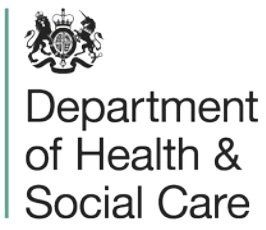
Increased 2024 funding for nursing in care homes
NHS-funded nursing care rates provided to care homes for the nursing needs of their residents are rising in April.
- The rate paid to care homes for NHS-funded nursing care will increase by 7.4% for 2024 to 2025
- The standard weekly rate per person eligible for NHS-funded nursing care will increase from £219.71 to £235.88 from 1 April 2024
Increased funding for care homes providing nursing will support tens of thousands of care home residents with nursing needs, following confirmation that the government will increase the rate by 7.4% for 2024 to 2025.
The standard weekly rate per person provided for NHS-funded nursing care will increase by 7.4% from £219.71 to £235.88 from 1 April 2024, with funding paid by the NHS directly to care homes who provide nursing care. For the higher rate, it will increase from £302.25 to £324.50. This allows eligible care home residents with specific nursing needs to benefit from NHS-funded nursing care.
Registered nurses provide support to people eligible for NHS-funded nursing care with a variety of needs, including people with learning disabilities, those living with enduring physical or mental health needs and various conditions associated with old age. This type of nursing requires a range of skills and training, with the extra funding supporting this important role.
The NHS-funded nursing care rate helps cover the costs of nursing care, ensuring the vital provision can continue to support the needs of residents within nursing homes. The uplift for the 2024 to 2025 financial year is based on adult social care data which is quality assured and independently verified, and cost collection data submitted by adult social care providers which has been quality assured.
Providing this nursing care also helps reduce the pressure on hospitals, ensuring the government’s record funding can be used to help discharge medically fit patients into social care settings. This care eases pressure on the NHS and delivers on the government’s plan to cut waiting lists.
The government has a 10-year vision for adult social care. To support that vision, the government has made available up to £8.6 billion over this financial year and next for adult social care and discharge.
This funding will enable local authorities to buy more care packages, help people leave hospital in a timely way, improve workforce recruitment and retention, and reduce waiting times for care. Patients get the care they need more quickly.
The government is additionally investing up to £700 million to make major improvements to the adult social care system. These include:
- improving care workers’ skills and supporting career progression
- investing in technology
- innovation and digitisation and adapting people’s homes to allow them to live independently
https://www.gov.uk/government/news/increased-2024-funding-for-nursing-in-care-homes?utm_medium=email&utm_campaign=govuk-notifications-topic&utm_source=57a253f8-8762-472a-9ccb-5000f9d50e4d&utm_content=immediately&utm_source=Joey+use+only+-+Associations+Contacts&utm_campaign=1a5ced606b-EMAIL_CAMPAIGN_2023_09_04_11_58_COPY_02&utm_medium=email&utm_term=0_-f151aafc49-%5BLIST_EMAIL_ID%5D


















